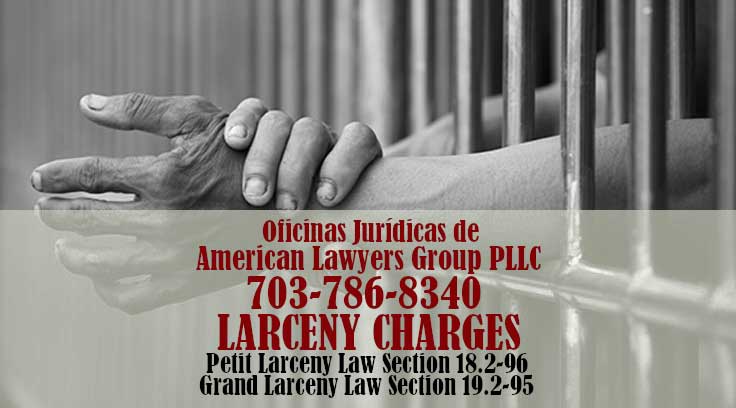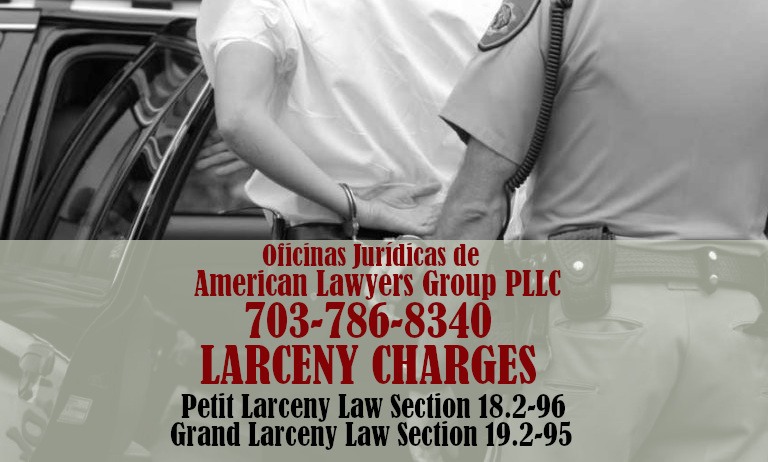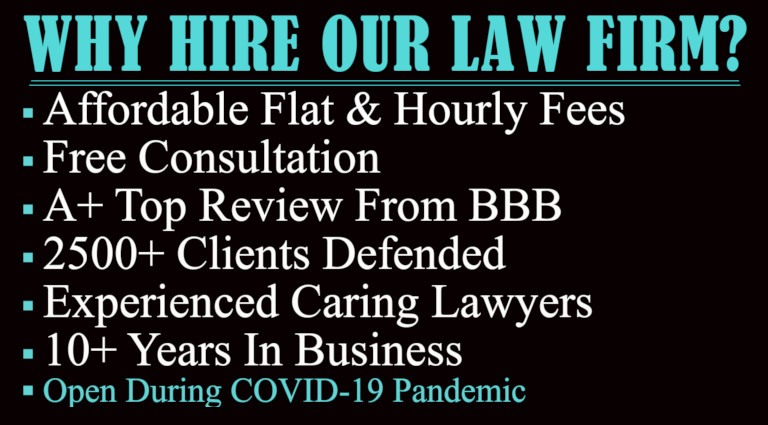Fairfax Theft Attorney
Let us fight your theft charge in court. As a Fairfax theft attorney, I’ve defended clients in the criminal Virginia courts. Call me to discuss your theft larceny criminal charges.
read below how we fight theft charges in court.
Virginia law takes theft, also known as larceny, as a very serious crime.
Depending on the value of what is stolen and the manner in which it was stolen.
Our Fairfax theft attorney in Virginia, explains: as a criminal offense, a charge, and conviction of theft may end up on your criminal record and cause other collateral damages.
Because larceny is considered a crime of moral turpitude and reflects negatively on your moral standards, a conviction could also impact your ability to obtain certain employment or attend a particular college.
To have the best defense for your case, it is important to hire a Fairfax theft attorney to advise you on what your options are.
Legal representation may be the difference between paying a fine or spending time in jail.
What Is Petit Theft In Fairfax?
According to the Virginia Code § 18.2-96, petit larceny is the theft of property that is valued at $500 or less.
This value threshold only applies to theft that is indirect.
When someone steals something directly from another person this is called robbery.

The value threshold to be charged with petit larceny when it is directly from another person is less than $5. If you are convicted of petit larceny, this is considered a Class 1 misdemeanor. A Class 1 misdemeanor is punishable by up to twelve months in jail and a maximum fine of up to $2,500.
What Is Grand Theft In Fairfax?
According to Va. Code § 18.2-95, someone who steals $5 or more directly from another person or commits simple larceny of a property valued at $500 or more, then you may be charged with grand larceny.
You may also be charged with grand larceny if you commit theft of a firearm or gun.
Theft of a firearm or gun does not have a threshold value to be charged with grand larceny.
The fines and jail time for a grand larceny conviction are much greater than a petit larceny conviction.
Since a grand larceny charge is considered a Class U Felony, there is a maximum jail sentence up to twenty years and a fine up to $2,500.
There is no minimum requirement by Virginia law to spend time in jail and at the discretion of the judge, the conviction may be tried as a misdemeanor instead of a felony.
Is Shoplifting Considered Theft in Fairfax?
An example of theft is shoplifting. Depending on the value of what is stolen, you may be charged with petit or grand larceny.
You may be charged with shoplifting for stealing something as small as a stick of gum and as big as stealing an iPhone.
You will also be charged with shoplifting for any of the following based on Va. Code § 18.2-103:
- Concealing or taking possession of merchandise
- Changing price tags
- Altering containers
- Counsels, assists, aids or abets another with theft
Shoplifting property with a value less than $500 is considered petit larceny and is a Class 1 misdemeanor. Shoplifting goods or property with a value of $500 or more is considered grand larceny and is considered a felony.
It is important to note that even though you are not the actual person committing theft, helping someone else commit this crime may still be punishable.
What Are Other Forms of Larceny?
There are a variety of acts that the Commonwealth of Virginia considers committing larceny. The following are other forms of larceny:
- Unauthorized use of a vehicle
- Burglary or breaking and entering
- Embezzlement
If you are convicted of unauthorized use of an animal, aircraft, vehicle, or boat that you do not own, then this is considered a Class 6 felony.

If the value of the animal, aircraft, vehicle or boat is valued less than $500, then it may be considered a Class 1 misdemeanor.
A Class 6 felony is punishable by up to five years in jail and a fine of up to $2,500.
It is very important to hire an experienced Fairfax theft attorney to defend your criminal charge.
Burglary or breaking and entering the home of another with the intent to commit larceny in the nighttime is considered a Class 3 felony.
A Class 3 felony can be punishable with prison time between five to twenty years and a fine up to $100,000.
Depending on the circumstances of the burglary, this may increase the charge and penalties if convicted.
If the burglary included a deadly weapon then the charge may move up to a Class 2 felony.
A Class 2 felony is punishable by imprisonment twenty years to life and a fine up to $100,000.
Embezzlement is the fraudulent or wrongful possession of property or assets of the company.
Embezzlement is most commonly committed within large corporations and is considered a white-collar crime.
Embezzlement may also occur in small businesses where a business manager takes money from their employers for themselves.
Depending on the value of money that is stolen will determine if you are charged with petit or grand larceny.
What Will Happen If You Are Charged With Grand Larceny in Fairfax?
If you are charged with grand larceny then you should take this charge very seriously, however, there is still time to fight your case.
If this is your time being charged with grand larceny, then you need to hire a criminal defense attorney.
With the help of your Fairfax theft attorney, you may be able to try and have your charge either reduced to a misdemeanor or negotiate a deal with the prosecutor.
As a first-time offender, this does not mean that you are guaranteed to have your charges reduced.
If your Fairfax theft attorney can prove to the judge that the value of the property you stole had a value less than $500 or that you directly stole property from someone that was less than $5, then you may be able to have your charges reduced.
If you are able to successfully prove the value of the theft, then this may convince the judge to drop your grand larceny charges to petit larceny.
Make sure to contact an experienced Fairfax theft attorney to help defend your criminal charges in Virginia.
What Will Happen If You Are Charged With Petit Larceny in Fairfax?
For a first offense petit larceny charge, there is a little bit more leniency than a grand larceny charge depending on the circumstances.
If the theft did not include any aggravated circumstances and you are able to discuss a negotiation with the prosecutor, you may be able to avoid jail time with an experienced Fairfax theft attorney.
Even though a misdemeanor charge for petit larceny may not result in jail time, this charge will still be on your criminal record.
It is important to understand the seriousness of this charge and to contact a criminal defense attorney the moment you receive this charge.
What Is Larceny With The Intent To Sell Or Distribute in Fairfax?
The penalties for larceny do not stop at the actual act of committing theft.
If you are charged with grand larceny with the intent to resell or distribute, then there is a minimum requirement of two years in prison.
The maximum prison sentence for the intent to sell or distribute stolen property with a value of more than $500 is considered a Class 5 felony.
A Class 5 felony is punishable by a maximum of twenty years in prison.
If you are found with more than one of the same items, then you may be charged with intent to sell or distribute stolen property.
A key difference between grand larceny charges versus grand larceny with the intent to sell or distribute is that there is no minimum prison sentence for a grand larceny charge.
Can You Be Charged With Receiving or Possessing Stolen Property in Fairfax?
Yes. There are a few things that a prosecutor must prove in order to convict you for receiving or possessing stolen property.
Firstly, they must confirm that the property was indeed stolen.
This would entail tracking where the original act of larceny was committed and the value of what was stolen.
Secondly, they must confirm that the defendant was the one to buy or receive the property that was stolen.
The prosecutor must prove that you were aware that the property was in your possession.
Thirdly, they must prove that you had the knowledge of the theft.
If you bought something without being aware of its original whereabouts, then you may not be charged.
Finally, they must prove that you had a dishonest intent in receiving or possessing the property.
Similar to the intent to sell or redistribute, merely possessing this item knowing that it had been stolen is dishonest intent.
This charge is convicted with similar penalties to a larceny charge.
If the value of the property you have in your possession is valued more than $500 then it is considered a felony and is punished accordingly. If the property is valued at less than $500 then it is considered a misdemeanor.
As always, both of these charges are on your permanent criminal record and may impact future opportunities.



